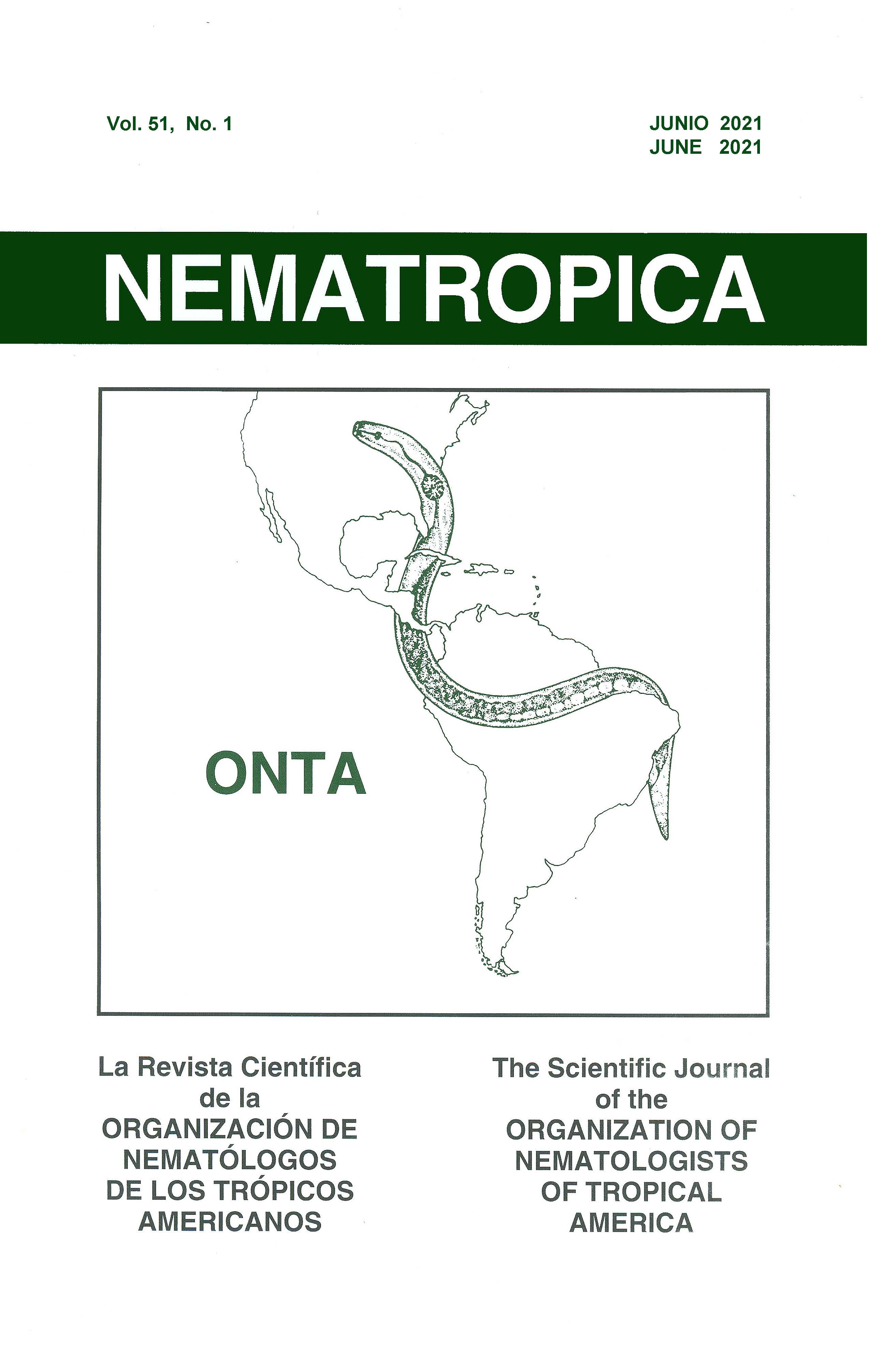AQUEOUS EXTRACT OF CASTOR BEAN SEED CAKE FOR THE CONTROL OF PRATYLENCHUS BRACHYURUS IN SOYBEAN
Abstract
Agroindustrial wastes are sources of compounds with nematicidal potential. However, such wastes are generally only available in small quantities, which may impair commercial application. Preparing aqueous extracts of these materials may provide products with nematicidal activity. This study assessed the aqueous extract of castor bean (Ricinus communis) seed cake to control Pratylenchus brachyurus in soybean. A 10% (w/v) castor bean cake aqueous extract was prepared and diluted to 5, 10, 15, and 20% in distilled water. The negative control was 0% (without extract). First, the nematicidal activity of the extract was assessed in vitro. Then, the extract was applied to soil to evaluate effects on P. brachyurus reproduction and soybean growth. The chemical composition of the cake and the total phenolic content of the undiluted extract were also determined. Aqueous extract of castor bean seed cake at dilutions close to 20% resulted in P. brachyurus mortality in vitro of 65% and reduced P. brachyurus reproduction in vivo by approximately 60% compared to the control. A 40% increase in soybean shoot dry weight was observed with extract application. The cake proved to be rich in nutrients, and the total phenolic content of the aqueous extract was 1,078.6 mg gallic acid equivalents/100 g. Identification of nematicidal compounds in castor bean seed cake aqueous extract may guide the development of novel nematicidal products.

